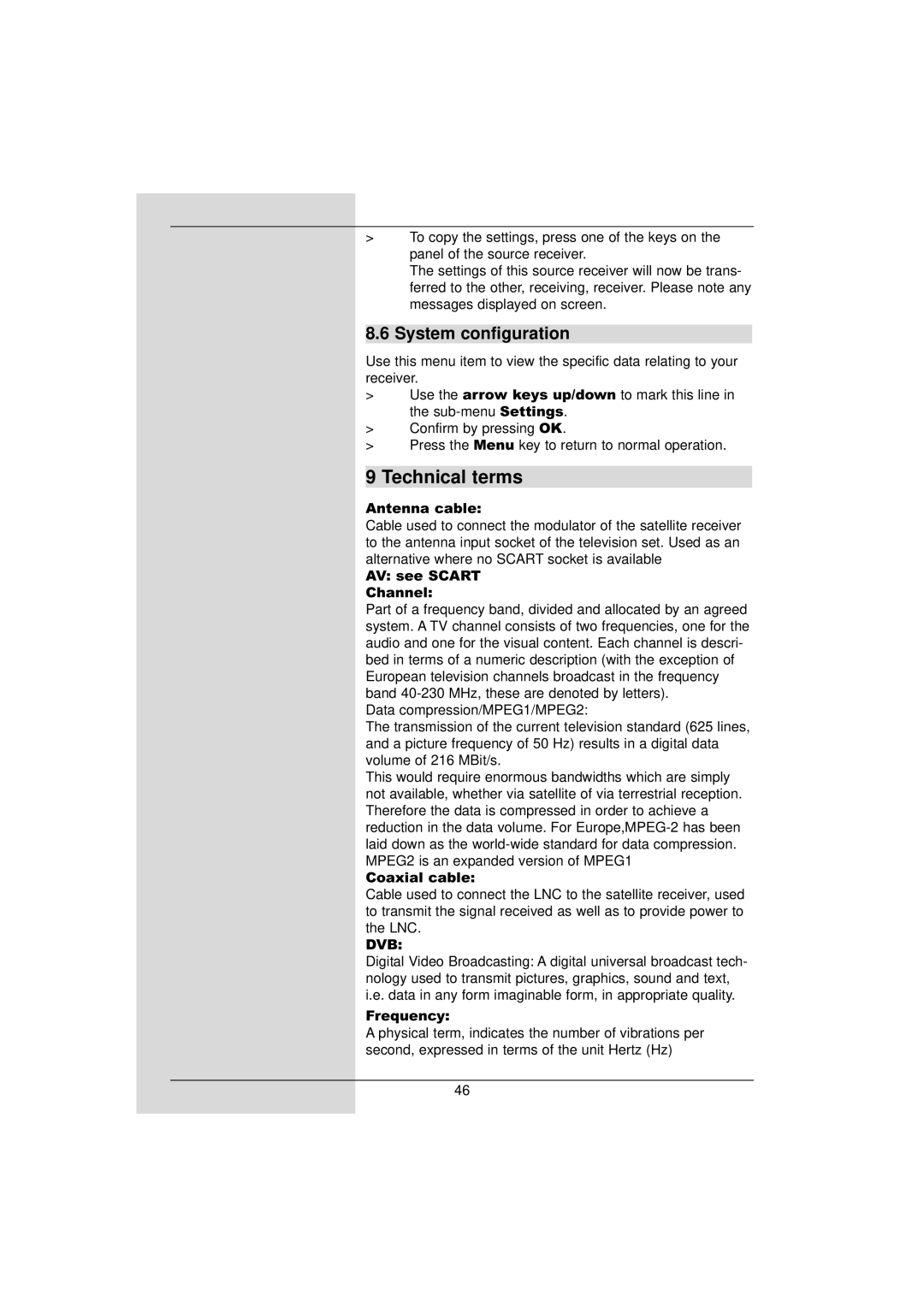
>To copy the settings, press one of the keys on the panel of the source receiver.
The settings of this source receiver will now be trans- ferred to the other, receiving, receiver. Please note any messages displayed on screen.
8.6 System configuration
Use this menu item to view the specific data relating to your receiver.
>Use the arrow keys up/down to mark this line in the
>Confirm by pressing OK.
>Press the Menu key to return to normal operation.
9 Technical terms
Antenna cable:
Cable used to connect the modulator of the satellite receiver to the antenna input socket of the television set. Used as an alternative where no SCART socket is available
AV: see SCART
Channel:
Part of a frequency band, divided and allocated by an agreed system. A TV channel consists of two frequencies, one for the audio and one for the visual content. Each channel is descri- bed in terms of a numeric description (with the exception of European television channels broadcast in the frequency band
Data compression/MPEG1/MPEG2:
The transmission of the current television standard (625 lines, and a picture frequency of 50 Hz) results in a digital data volume of 216 MBit/s.
This would require enormous bandwidths which are simply not available, whether via satellite of via terrestrial reception. Therefore the data is compressed in order to achieve a reduction in the data volume. For
Coaxial cable:
Cable used to connect the LNC to the satellite receiver, used to transmit the signal received as well as to provide power to the LNC.
DVB:
Digital Video Broadcasting: A digital universal broadcast tech- nology used to transmit pictures, graphics, sound and text, i.e. data in any form imaginable form, in appropriate quality.
Frequency:
A physical term, indicates the number of vibrations per second, expressed in terms of the unit Hertz (Hz)
46
